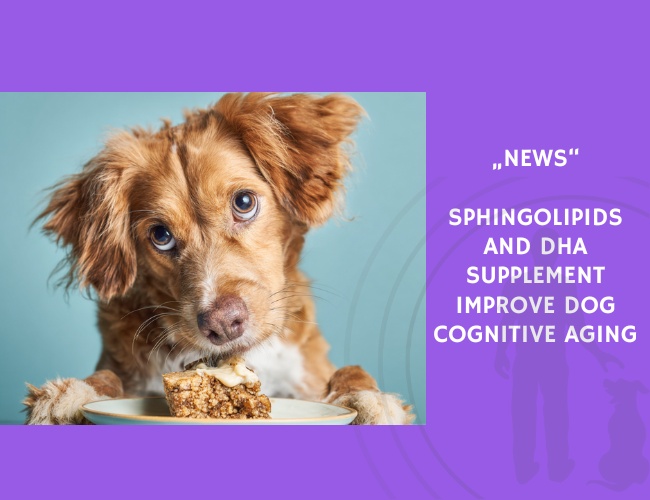Canine cognitive dysfunction syndrome (CDS) is a progressive neurodegenerative condition of older dogs, mirroring aspects of Alzheimer’s disease in humans. It manifests as disorientation, reduced learning ability, attention deficits, and memory loss. Beagle dogs are often used as a natural model for this condition, enabling evaluation of dietary and therapeutic interventions.
In this study, J. Araujo and colleagues (2022) administered a novel lipid extract composed of sphingolipids and DHA to aged Beagles (n = 12 per group) over a 6-month period. Dogs were tested using validated neuropsychological tasks, including delayed non-matching to position (DNMP), selective attention, discrimination learning, spatial discrimination, and reversal learning. Brain metabolism was also measured using magnetic resonance spectroscopy (MRS).
Results showed that placebo-treated dogs experienced a significant decline in DNMP working memory performance (p = 0.02), while supplemented dogs did not, suggesting protection against memory loss. Supplemented dogs also demonstrated improved performance in spatial discrimination and reversal learning tasks (p = 0.01), reflecting enhanced spatial recognition and executive function. MRS analysis further revealed a significant increase in frontal lobe glutamate and glutamine levels (p = 0.048) in the treatment group, metabolites known to decline with cognitive deterioration.
These findings indicate that targeted lipid supplementation may help counteract age-related cognitive decline in dogs. Moreover, given the parallels between canine and human aging, the results suggest possible applications for human cognitive health research, reinforcing the value of the dog model in translational neuroscience.
Source: Araujo, J., Segarra, S., Mendes, J., Paradis, A., Brooks, M., Thevarkunnel, S., & Milgram, N. (2022). Sphingolipids and DHA Improve Cognitive Deficits in Aged Beagle Dogs. Frontiers in Veterinary Science, 9. Authors: J. Araujo et al. Publication Date: July 13, 2022. Journal: Frontiers in Veterinary Science.










